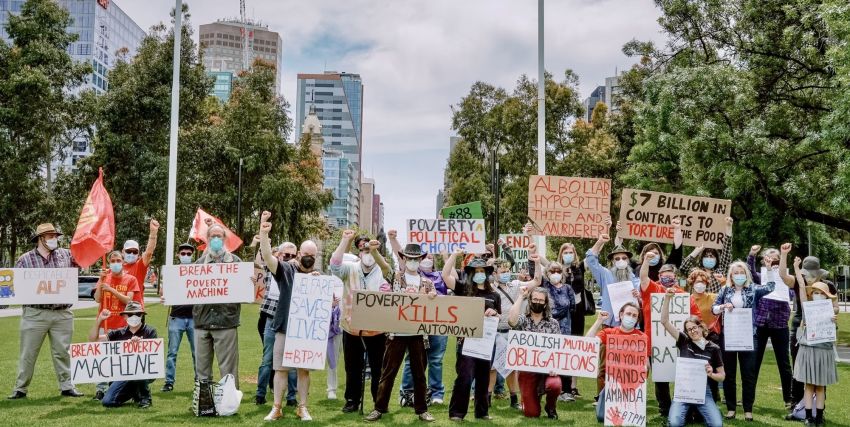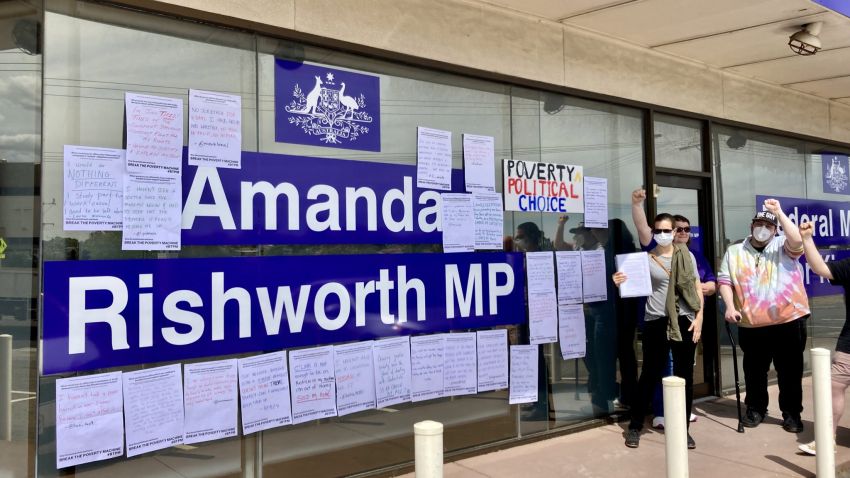
Anti-poverty activists, welfare recipients and supporters gathered outside Social Services minister Amanda Rishworth’s Adelaide office on the International Day for Eradicating poverty on October 17 to call on her government to raise welfare payments to take millions out of poverty.
The Antipoverty Centre and the Australian Unemployed Workers Union delivered hundreds of messages to Rishworth, posting some on a wall outside her office and handing others to one of her staff.
Welfare recipients from across the country posted messages on social media under #BTPM (Break the Poverty Machine).
“Immediately abolish the ‘mutual obligations’ system, which has nothing to do with getting people out of poverty,” one said.
Some pointed out the health impacts of the low payment rate: “I haven’t seen a doctor since the pandemic and had to stop HRT [hormone replacement therapy]. The dysphoria is really messing me up”.
Another said: “I’m sick of having to choose between food and medical appointments”.
Another, directed at Albanese, said: “Don’t just talk about how you grew up in public housing. Build some.”
Melissa told the protest about how six years on JobSeeker led to her being diagnosed with scurvy and malnutrition. “I’ve been forced to cut out health foods for pasta, rice, noodles and bread … not one politician has to see the fallout from their decision not to raise the rate.”
Currently JobSeeker is $334 per week, 45% below the poverty line. Youth Allowance, the payment for students, is even lower. Payments were far too low even before the cost-of-living crisis.
The payment only went above the poverty line over a brief period under the first COVID-19 lockdowns, when they were doubled.

Others pointed to the modest cost of raising the rate compared to the stage 3 tax cuts for the rich, which are now estimated to be $254 billion (over 10 years).
Meanwhile, a Raise the Rate protest in Newcastle, outside the Centrelink office, calling for JobSeeker and all other payments to be raised to at least $88-a-day.
New South Wales Greens Senator Mehreen Faruqi told the protest: “Poverty is not inevitable, poverty is not written in the stars, poverty is a political choice that governments make.”
She pointed out that one in eight people live in poverty. For people with a disability and children, that number is one in six.
[Join the Raise the Rate campaign here. Add your voice to the campaign by posting on social media with #BTPM.]